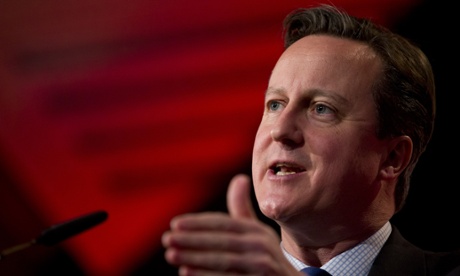
David Cameron should bring forward his planned referendum on Britain’s EU membership by a year to 2016, Boris Johnson has said, issuing a plea to “get it done”.
As Ed Balls, the shadow chancellor, raised fears that an early referendum could lead to “Britain walking out of the EU”, the London mayor said that a vote next year would be “very positive” for the UK and the rest of the EU. “Get it done, get the change, get it done, put it to the people,” Johnson said during a trip to New York.
Johnson issued his call as the prime minister warned at the British Chambers of Commerce conference in London that a failure to hold an EU referendum could risk a British exit from the EU.
Cameron said: “I think the danger of the alternative to what I’m suggesting is that Britain would just steadily drift towards the exits of the EU because the British public would not be taken along for this very, very important decision.”
The comments come as negotiations intensified between Greece and its international creditors over a debt-repayment deal to keep the country in the eurozone, which has endured 18 months of economic near-stagnation.
The prime minister made his comments in a question-and-answer session after his speech in which he warned business leaders that Labour would seek to “demonise” them if it won the election. He said corporation tax and business rates would rise because the party under Ed Miliband regarded the private sector as bad and the public sector as good.
In a parody of Neil Kinnock’s famous warning in 1983 of the threat posed by the re-election of Margaret Thatcher, the prime minister said: “I warn you not to grow your business, because they’ll come after you. I warn you not to take people on, because they’ll slap taxes on you. I warn you not to create wealth, because they’ll demonise you.”
Conservatives and Liberal Democrats both exploited the absence of Miliband from the conference, saying it revealed his true animosity to business. Labour hit back, saying the party’s business spokesman, Chuka Umunna, and Balls had represented the party.
Balls said he had no idea about the diary clash that led to Miliband not attending the conference, saying it was a silly story and he had had the engagement in his diary for the past five months. The Labour leader would be speaking at the Engineering Employers’ Federation in a fortnight, he said.
The shadow chancellor warned of the dangers of an early EU referendum after the director general of the British Chambers of Commerce, John Longworth, said a vote in 2016 was the best way to end political uncertainty over the UK’s relations with Europe. Longworth’s call for an early poll is a blow to Labour, which believes that its opposition to a referendum is one of its main selling points to business.
Balls warned that there would be no time to embark on a meaningful EU renegotiation in such a short period of time. “Every hint that a referendum could happen as early as next year – before any meaningful reform agenda could be achieved – only adds to the uncertainty and risk for British businesses,” he told the conference. “Because I fear that Britain walking out of the EU is the biggest risk to our economy in the next decade. EU exit risks British jobs, trade and investment and the future prosperity of the UK.”
The prospect of an early referendum emerged over the weekend after the Sunday Times reported that the prime minister was examining plans to bring forward the vote from 2017 if he won the election. George Osborne said during a meeting of G20 finance ministers in Turkey on Tuesday that he would be “delighted” if the referendum could be held in 2016.
Johnson added his voice to calls for an early vote. He said in New York: “I very much welcome the idea of bringing forward the renegotiation and the referendum. Let’s get it done. We should stress that this is something that can be very positive, not just for Britain but for the whole of Europe and indeed for investors in Europe, because a reformed Europe will deliver growth and prosperity.”
Downing Street is being careful not to dismiss speculation about an early referendum because it fears accusations that it will once again renege on a commitment to hold an EU vote. The prime minister promised to hold a referendum on the Lisbon treaty before the last election, only to back down when the measure formally entered EU law after it was ratified by all member states.
But Downing Street believes there are two practical obstacles to an early poll. In the first place it is likely to take up to two years to pass the legislation to enable the referendum to be held because the Tories expect that they will have to invoke the Parliament Act to override opposition in the House of Lords. The prime minister also believes it may take more than a year to negotiate wide-ranging reforms.
On the floor of the business conference, delegates were realistic about the event becoming a political battleground only three months from a general election.
Robert Collier, chief executive of the Aberdeen & Grampian Chamber of Commerce, said: “
We like to be loved just before an election. It would be nice to be loved after as well.”

